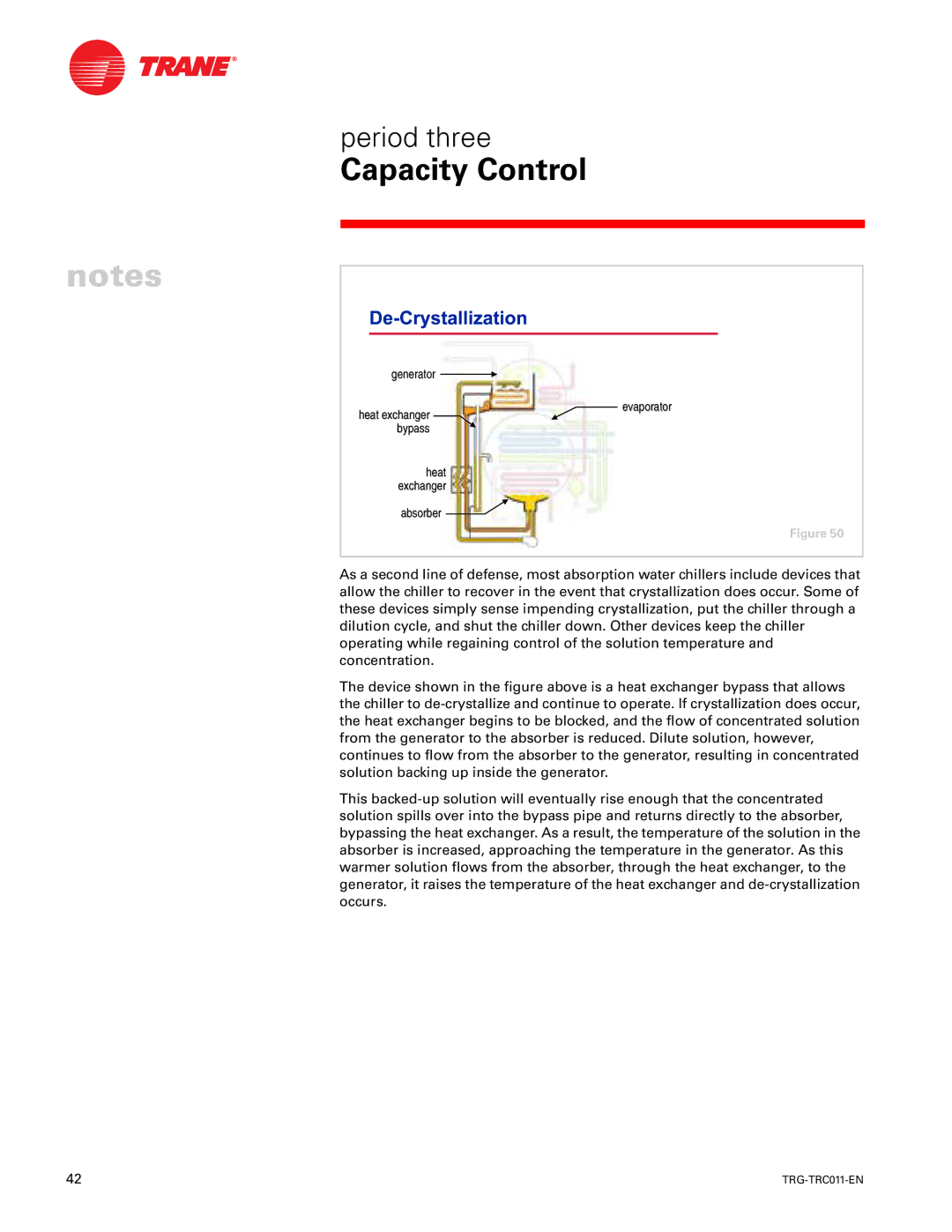period three
Capacity Control
notes
generator
heat exchanger
absorber 
Figure 50
As a second line of defense, most absorption water chillers include devices that allow the chiller to recover in the event that crystallization does occur. Some of these devices simply sense impending crystallization, put the chiller through a dilution cycle, and shut the chiller down. Other devices keep the chiller operating while regaining control of the solution temperature and concentration.
The device shown in the figure above is a heat exchanger bypass that allows the chiller to de-crystallize and continue to operate. If crystallization does occur, the heat exchanger begins to be blocked, and the flow of concentrated solution from the generator to the absorber is reduced. Dilute solution, however, continues to flow from the absorber to the generator, resulting in concentrated solution backing up inside the generator.
This backed-up solution will eventually rise enough that the concentrated solution spills over into the bypass pipe and returns directly to the absorber, bypassing the heat exchanger. As a result, the temperature of the solution in the absorber is increased, approaching the temperature in the generator. As this warmer solution flows from the absorber, through the heat exchanger, to the generator, it raises the temperature of the heat exchanger and de-crystallization occurs.

![]()
